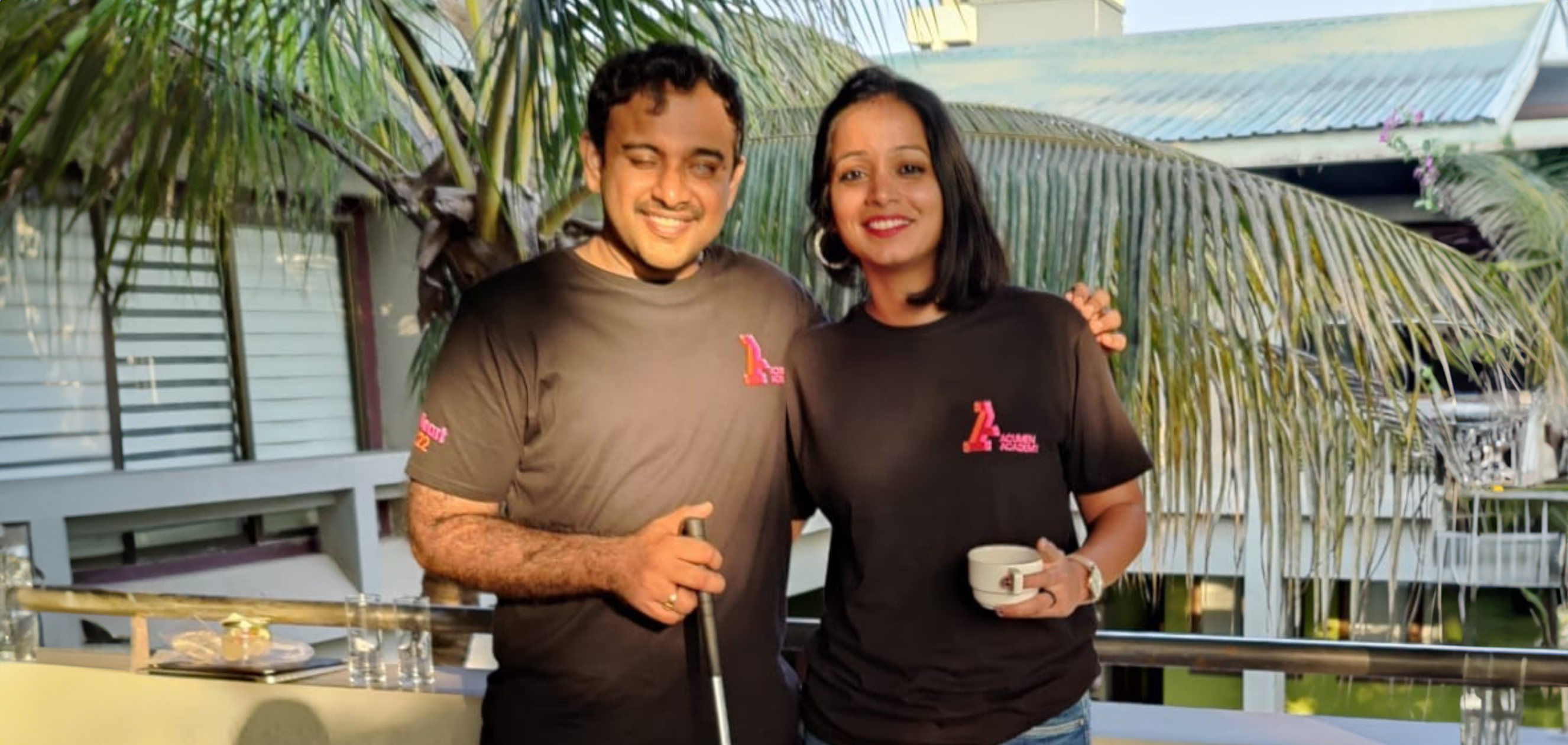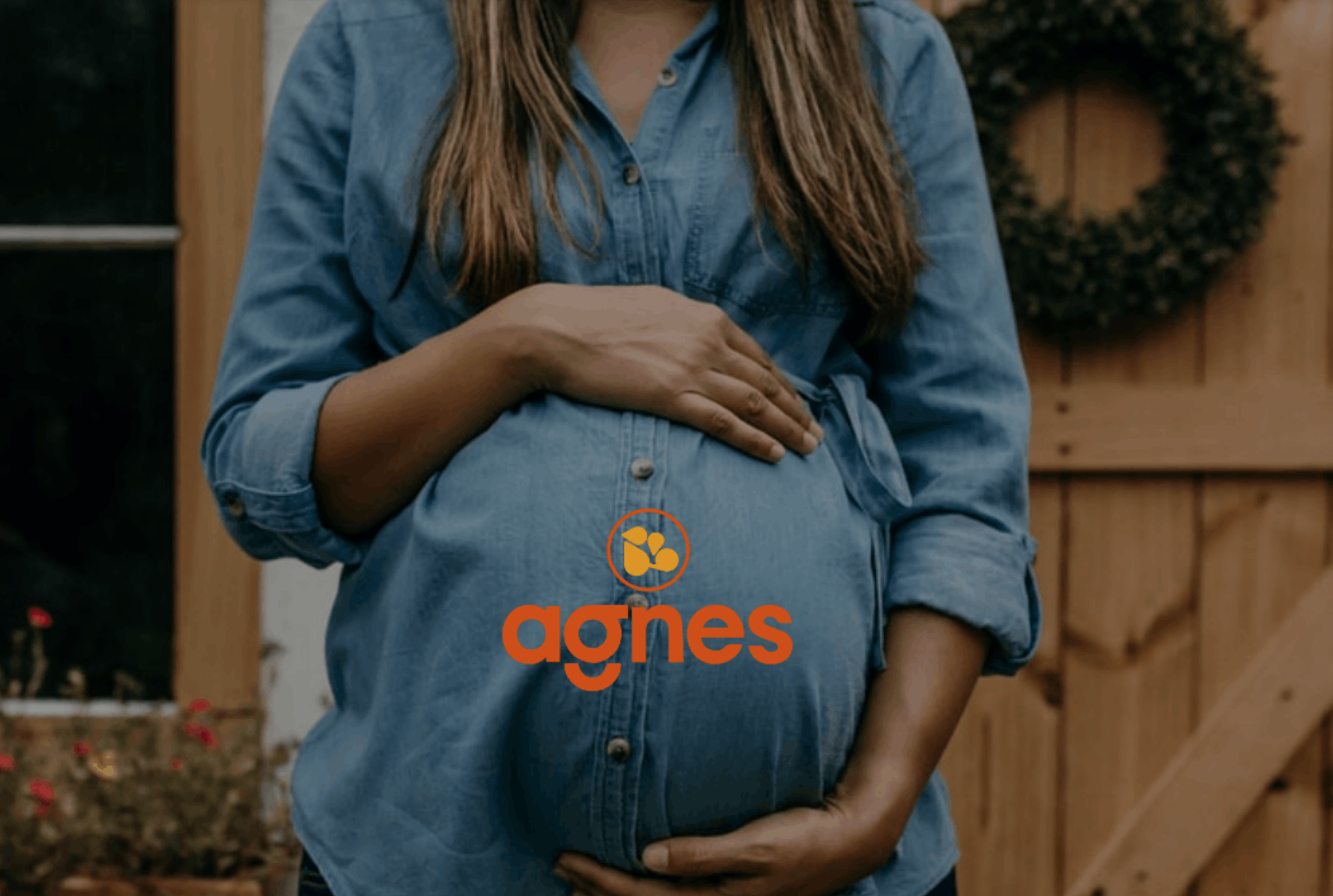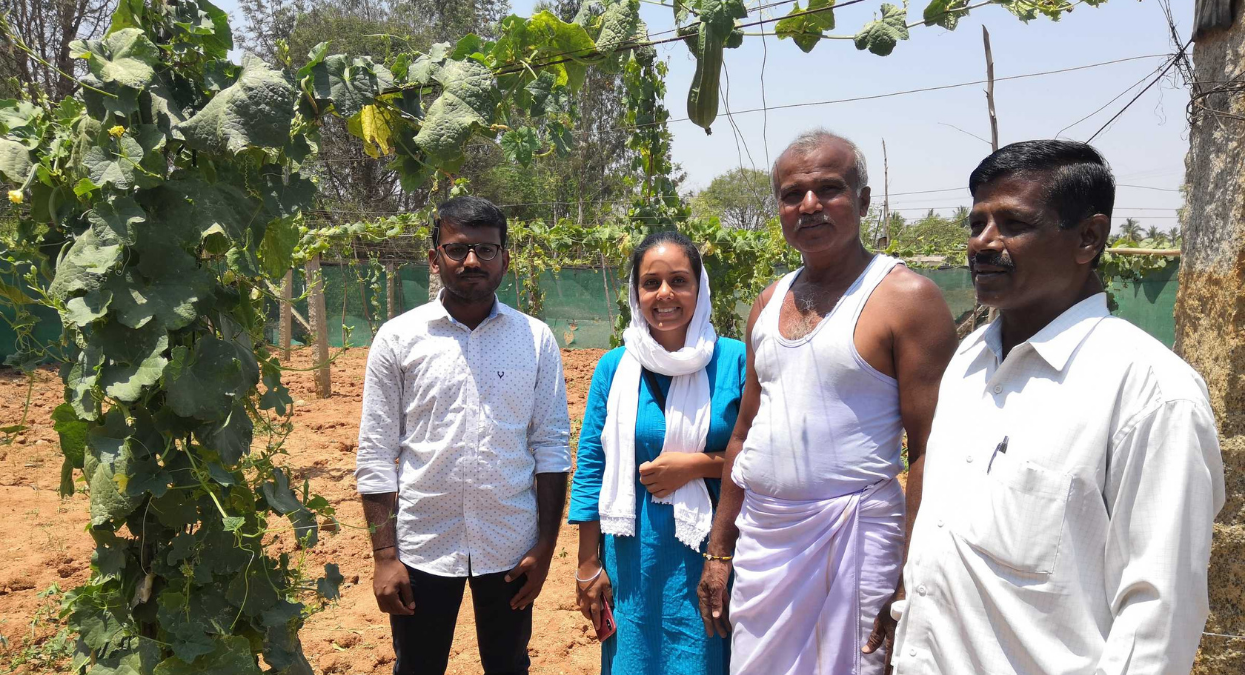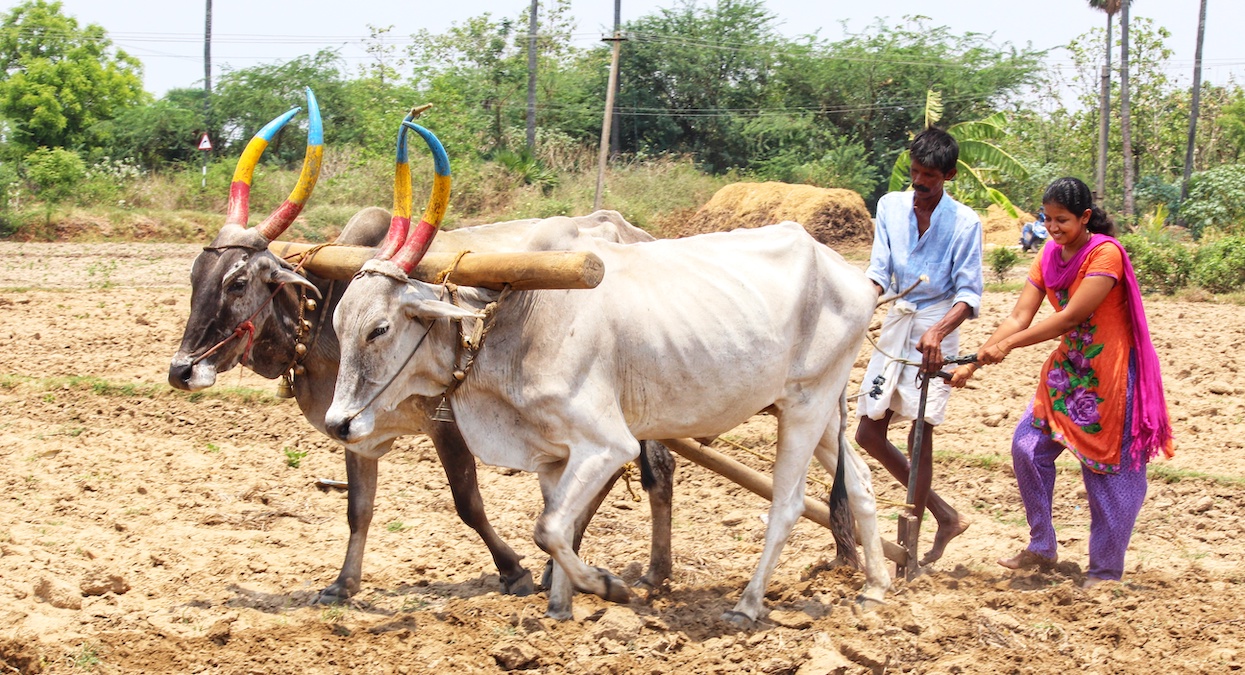Photo provided by Shweta Nagaria
In 2022, India Regional Manager Shweta Nagaria was presented with a unique opportunity to create an equitable experience when a disabled person joined Acumen Academy’s India Fellowship program.
Moses Gorrepati identifies as visually impaired and is the Executive Director of EnAble India, a non-profit which aims to achieve dignity and independence for people with disabilities across India by providing them access to job opportunities, career counseling, and training.
As Program Manager of the Fellowship, Shweta manages the learning journey of the Fellows from the point they join the Fellowship up until they become a part of the Foundry. Upon meeting Moses, she questioned how she might design a program that was both inclusive of Moses’ needs while also delivering the core curriculum outcomes he and the rest of the Fellows expected out of the program.
“To be honest, I was afraid that I was not equipped to manage an individual who cannot see.,” she says.
Holding values in tension
Initially, Shweta had to examine her own biases and hold values in tension before embarking on this journey:
“Do I believe people with disabilities can add value and be effective team players and managers?” People who are able-bodied may only envision other able-bodied people working with them. When in fact, people who are disabled provide fresh perspectives and problem solving skills that their able-bodied peers may never have imagined.
“Am I ready to go an extra mile?” Shweta was entering new territory, and she wanted to make sure she was prepared to put in the extra work to create the best experience for Moses.
“How do I support him but push him to learn at the same time?” Shweta didn’t believe Moses’ disability should prevent him from challenging himself and others in the group, but she also didn’t want to hold back from getting him the support he needed.
“Do I have people to back me up?” Shweta wanted to trust that the rest of the Fellows and program team would join in the process because they also believed that an equitable program was possible.
Upon sharing her hesitations with Moses, Shweta learned he was determined to join the program and was willing to guide her and help make his participation possible.
“Shweta, inclusion is a process, and it is okay even if you fail. I will partner with you to co-create an accessible experience,” said Moses.
“That moment, something shifted in me and I told myself: ‘I don’t want to do diversity and inclusion for the heck of it — beyond that, I want to ensure that whatever we do is truly accessible and equitable, not just inclusive” she said.

Photo clicked at the Acumen India Community Gathering 2022
10 steps that made the program more accessible
At the start of the program, Shweta and Moses came up with a goal: by the midpoint of the Fellowship, they wanted everyone to forget there was a blind person in the room. According to Shweta this happened mostly organically, but they also took several steps to get there:
1. SET NEEDS AND EXPECTATIONS
Shweta set up a meeting with Moses to understand his needs. She then shared her notes with those who would be interacting with him, which included details of his visual impairment (broad vision with a difficulty focusing on details or human faces) and his preferences for navigating the course For example, Moses prefers not to work on documents where multiple people have access at the same time. He asked that documents be sent to him ahead of time to ensure their accessibility and —because he cannot process images — he requested they all have descriptive text.
Because it would take him time to learn voices, he requested that speakers mention their name at the start of their comment. He also asked that facilitators pause speaking during Zoom calls where chat participation was required, as his screen reader would be reading both speaker and chat at the same time, causing confusion.
For in-person meetings, he would use a cane for walking and asked that the lighting not be too dim, as it would minimize the scope of his already limited vision.
Through this exercise, Shweta learned that every person with a disability has different needs — no two cases are exactly alike!
2. BUILD EMPATHY AND PREPARE EVERYONE
In the first check-in call with the cohort, Shweta set aside time for Moses to speak to the group, orienting them about how they could best support him. This ensured everyone would be well-informed and understanding of Moses’ needs.
3. HOLD A FELLOW-LED SESSION
As a ritual, the Fellowship allots each cohort member 30 minutes to present a topic of their choosing. Moses decided to take a session on ‘narratives’ around people with disabilities in order to further educate the group. He made space for everyone to make mistakes and corrected them with patience.
4. LEARNING MANAGEMENT SYSTEM CHECK
Although Moses came into the program technologically well-equipped, Shweta and her facilitators worked to ensure that any platform he was using was accessible. They reached out to him consistently to ensure he was set up for success.
5. HIRE A DIVERSITY AND INCLUSION INTERN
Shweta brought Fatima on board, a B.Sc first-year student passionate about diversity and inclusion, who was responsible for ensuring all required documents and videos were made accessible. She also informed Shweta of Microsoft Office’s ‘accessibility check’ function that can be done with any document, including Word, Excel, and Powerpoint.
6. ENSURE EXTERNAL FACILITATORS ARE EQUIPPED
Shweta and her team created an ‘accessibility folder’ which contained guidelines and tools needed to work with a visually impaired person. They shared this content with any guest facilitators ahead of time so that they could be well-prepared to meet Moses’ needs.
7. PROVIDE FLOW AND DOCUMENT IN ADVANCE
The team ensured that Moses was provided a separate folder with program documents 2-3 weeks in advance to give him ample time to process them.
8. CONNECT MOSES WITH A BUDDY
During in-person seminars, Fellows would volunteer to be ‘Moses’s Buddy’ from breakfast until dinner, acting as his ‘eyes’ for the day. This was consciously done to share the responsibility between the organizing team and the Fellows. Eventually, everybody helped build an inclusive space. “I like to believe this was Moses’ way of spending ‘quality time’ with each person,” says Shweta.
9. COLLABORATE WITH THE GLOBAL TEAM
The India Fellows team held meetings to learn from the mistakes and failures of other regions. They also encouraged global teams to elevate the profiles of three graduating Fellows with disabilities, as a sign of awareness and support. This led to conversations around making all global gatherings more inclusive.
“The more people who join the movement, the higher the chance that systems will shift." - Shweta Nagaria, Program Manager, Acumen Academy India
10. EARN THE PROGRAM A BRAILLE CERTIFICATE
“The promise was to make the Fellowship accessible end to end, and I was not kidding about it,” Shweta professed. One of Shweta's team members suggested making a braille certificate to hand to Moses upon the completion of the Fellowship, in place of the printed version other members received. A generous contact provided them a certificate free of charge through Xavier's Resource Centre for the Visually Challenged (XRCVC).




